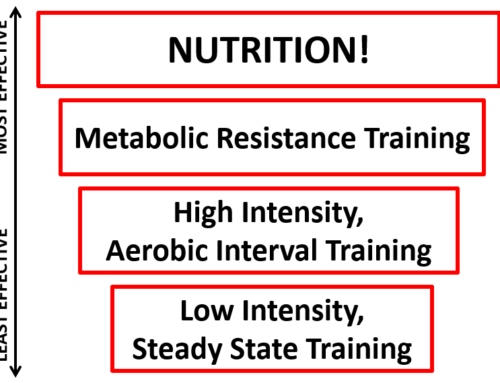Yes, you read that correctly, and it’s worth repeating: carbohydrates are key! Recent trends may lead you to believe otherwise, since low-carb diets have been popular weight-loss techniques in recent decades. But don’t be fooled into avoiding carbs altogether. After reading this week’s Focus Point, you’ll have a better understanding of the value carbs offer instead of considering them the root of all dietary evil.
The food we eat provides three types of macronutrients: protein, fat, and carbohydrates. While most foods contain some amount of each macronutrient, often one nutrient is dominant. Starchy foods (like bread, rice, pasta, and crackers) tend to be high in carbs. Carbs are also the main macronutrient in fruit, dairy products, and of course sweets.
Carbs are important to our bodies for a variety of reasons. Eliminating carbs can result in fatigue, excessive muscle soreness, and poor exercise tolerance. Not only are they the main source of our dietary energy, they are also the only form of energy for our brains.
Let’s take a closer look at the three types of carbohydrates: simple, complex, and fiber.
Simple carbs
Simple carbs or “sugars”, are broken down and used as quick energy for our body. There are two types: natural and added. Added sugars are found in highly processed foods such as sweetened beverages, candy, cookies and white flour products. They are low in vitamins, minerals and fiber. Natural sugars are found in fruit and dairy products. They do contain vitamins, minerals, and fiber; they are a great source of energy when looking for a pre-workout snack.
Complex carbs
These take longer to be absorbed and digested by the body, giving a sustained release of energy rather than a quick jolt. The majority of our carbohydrate intake should come from this category. Sources such as whole grains, vegetables, legumes, nuts, and seeds contain high amounts of nutrients, fiber, and a small amount of protein.
Dietary fiber
Fiber is not used for energy, but has many other benefits. Fiber can help regulate the digestive system, reduce circulating blood fats, and increase our feeling of fullness after eating. High fiber foods include fruits with skin, whole grains like bran and oats, vegetables, seeds, and nuts.
For this week and moving forward, focus on consuming brightly colored fruits, vegetables, and whole grains. The carbs you will get from these sources are not your enemy; they’re a vital part of a well-balanced, healthy, and delicious eating plan.





